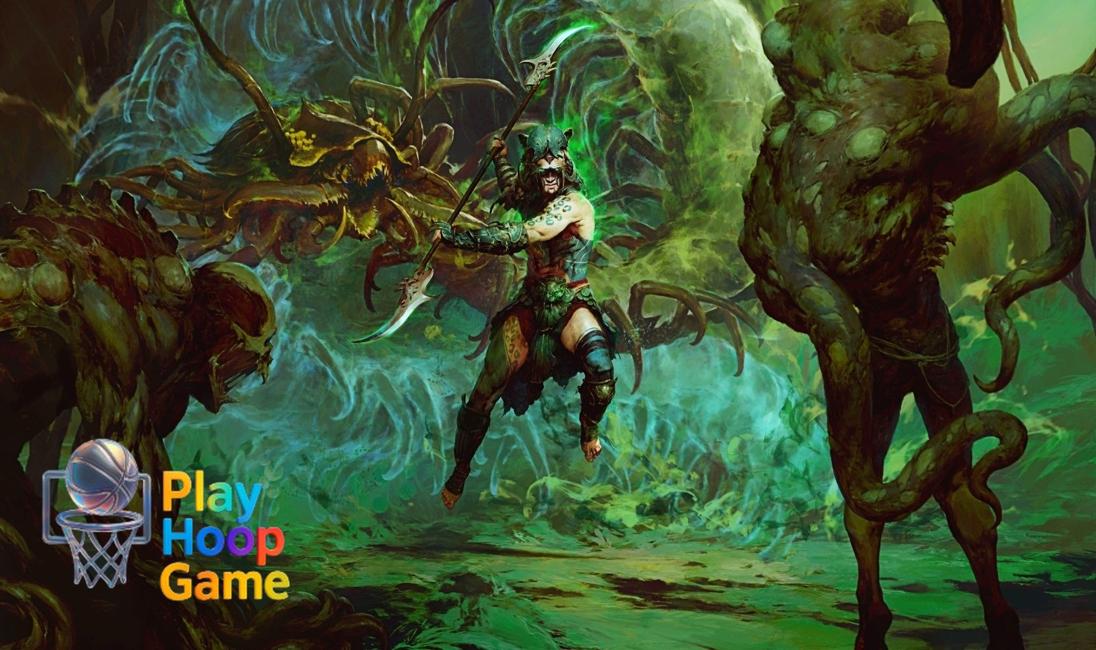Diablo Team Unionizes Over AI, Remote Work, and the Passion Tax? Here's the Thing...
Okay, let's be real. When I first heard rumblings about the Diablo team unionizing, my first thought wasn't exactly, "Oh, that makes sense." It was more like, "Wait, that team?" Because, let's face it, Blizzard, for all its legendary status, hasn't exactly been a beacon of progressive workplace practices lately. So, a union forming there? That's a statement. But why? And what does it mean for the future of game development, not just at Blizzard, but everywhere?
The headlines scream about AI, remote work, and the dreaded 'passion tax' - that insidious feeling that because you love what you do, you should be willing to accept less compensation and worse conditions. But honestly, there's probably more nuance to it than that, right? It's never just one thing. It's usually a confluence of factors, a slow burn of frustrations that finally reach a boiling point. And trust me, I've seen it happen. I'm getting deja vu from that recent Silksong showcase.
The Unholy Trinity: AI, Remote Work, and the Passion Tax
Let's break down these three horsemen of the gaming apocalypse, shall we? Starting with AI. I've got to admit, this part fascinates me. On one hand, AI tools are becoming incredibly powerful, able to automate tedious tasks and even generate impressive content. But on the other hand (and this is a big one), are studios going to start using them to replace actual human developers? Are we looking at a future where games are churned out by algorithms, devoid of the creativity and soul that only a human can bring? And it's hard to find good games on Poki these days! The current games are not doing it for me.
Remote work is a slightly different beast, but just as impactful. For some, it's a godsend – the ability to work from the comfort of their own home, avoiding soul-crushing commutes and inflexible schedules. But for others, it can lead to isolation, blurred lines between work and life, and a feeling of being disconnected from the team. And that's before we even get into the potential for pay disparities based on location. Is that what we're looking at?
And then there's the passion tax. Ah, the passion tax. The idea that because you're "lucky" enough to work in the gaming industry, you should be grateful for whatever scraps they throw your way. Lower pay, longer hours, crunch time that stretches on for months… it's all justified because, hey, you're making video games! But here's the thing: passion doesn't pay the bills. And it certainly doesn't excuse exploitative practices. Honestly, as someone who loves games, it makes me angry.
What's the Impact of a Unionized Diablo Team?
Okay, so the Diablo team unionizes. Big deal, right? Actually, it could be a huge deal. Think about it this way: Diablo is one of Blizzard's flagship franchises, a massive moneymaker. If the team behind it is willing to take this step, it sends a powerful message to the rest of the industry: things need to change. It's a brave act, and I, for one, hope it inspires others to stand up for their rights and demand better working conditions. And hey, maybe this will make people care about Diablo again. I'm only half kidding. This cool sports game reminded me that I used to be into gaming.
But it's not just about Blizzard. This is about the entire gaming industry, which has a long history of exploiting its workers in the name of passion and profits. By unionizing, the Diablo team is challenging that status quo and paving the way for a more equitable and sustainable future. And honestly, that's something we should all be rooting for.
Looking Ahead: A More Equitable Future for Game Developers?
The road ahead won't be easy. There will be resistance from management, legal battles, and maybe even some backlash from fans who don't understand what's at stake. But if the Diablo team can successfully negotiate a fair contract, it could set a precedent for other studios to follow. We might be looking at a future where game developers are treated with the respect and dignity they deserve. And that's a future worth fighting for. Because in the end, happy developers make better games. It's really that simple.
I keep coming back to this point because it's crucial: the gaming industry needs to move away from the culture of crunch and exploitation. It needs to recognize that its workers are not just cogs in a machine, but talented and passionate individuals who deserve to be treated fairly. And maybe, just maybe, this unionization effort is the first step towards making that a reality.
FAQ: Diablo Team Unionization - Your Burning Questions Answered
Why are the Diablo team unionizing now?
It's likely a combination of factors. Concerns about AI job displacement, the challenges of remote work, and long-standing issues with the "passion tax" in the gaming industry have probably created a tipping point. It's a situation where these issues have grown large enough to motivate workers to seek collective bargaining power.
What impact will this have on future Diablo games?
That's hard to say for sure, but in theory, happier and more fairly treated developers could lead to better quality games. A union contract could ensure reasonable working hours, fair compensation, and better job security, all of which can contribute to a more positive and productive work environment. Two player games are still fun but I've seen the hours those people work. It's terrible!
Is this a sign of wider unionization in the gaming industry?
Potentially, yes! The Diablo team unionizing could inspire other game developers to organize and demand better working conditions. It's a high-profile example that shows that unionization is possible and can be a viable option for addressing industry-wide issues.
How does AI play into the Diablo team unionization?
AI is a major concern because of its potential to displace human workers. Developers are worried that studios might use AI tools to automate tasks and reduce the need for human employees, leading to job losses. The unionization effort could be a way to negotiate protections against AI-related job cuts.
What exactly is the 'passion tax'?
The 'passion tax' refers to the expectation that people working in creative fields like game development should be willing to accept lower pay and worse working conditions because they are passionate about their work. It's the idea that the enjoyment of the job should compensate for things like long hours, low salaries, and lack of benefits. And that's not fair.

























